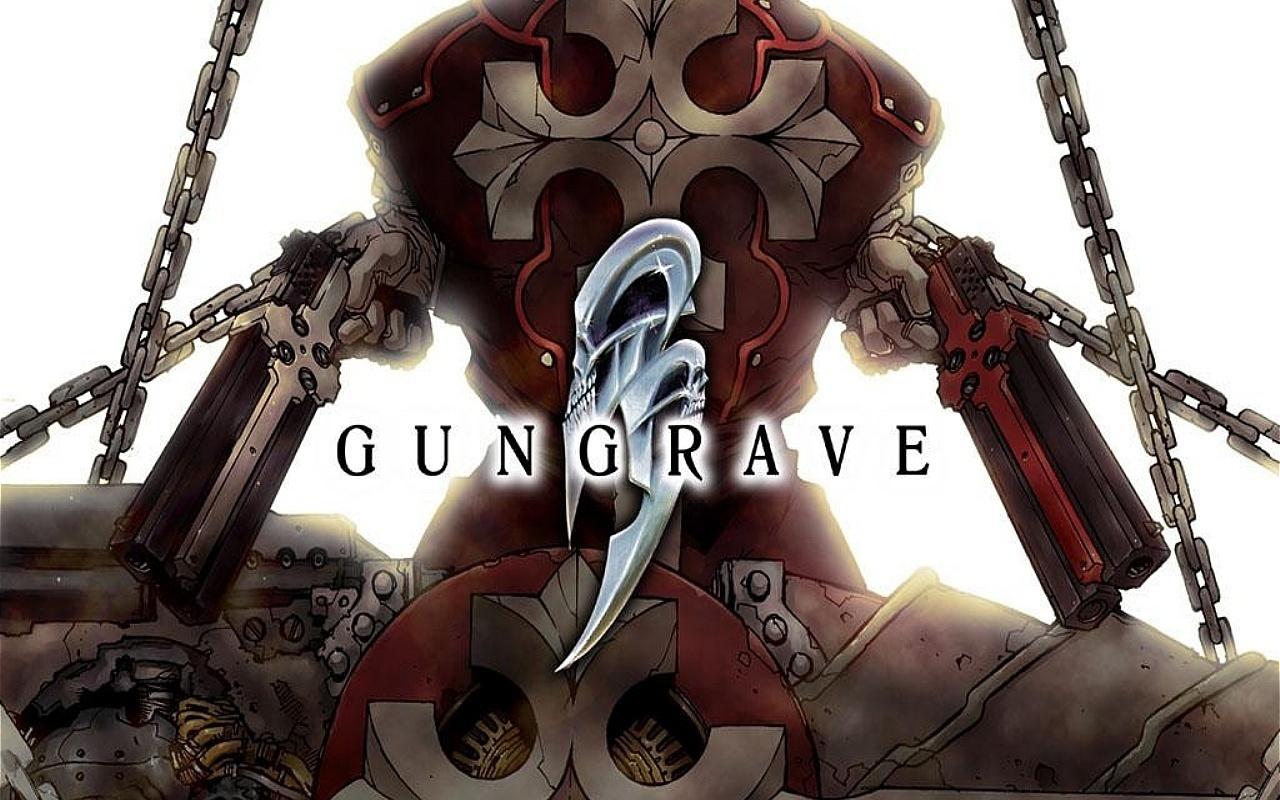Gangsters and zombies. When you stop to think about it, the two go together like peanut butter and chocolate. A perennial theme of both America and Japanese gangster films is how serving in an underworld organization robs you of your humanity. Whether out of love, loyalty or simply the desire to stay alive, you find yourself forced to commit one heinous, immoral act after the next (murder, betrayal, etc.) until your very soul is leached away. If you continue down this path, you can become, in effect, like a zombie—unthinking and unfeeling. The anime series Gungrave takes this theme and makes it literal: it shows gangsters who literally turn themselves into zombies and monsters. This brilliant conceit gives the show considerable power in spite of some imperfections.

Gungrave kicks off with a small army of white humanoid monsters attacking a van with two men, a girl and some creepy-looking scientific equipment inside. One of the three people—a lean, muscular, pale man wearing a strange purple cowboy outfit—bursts out of the van and lays waste to the monsters with a pair of massive handguns. This man, the viewer learns, is Brandon Heat, an assassin who has been resurrected as “Beyond the Grave.” The monsters were sent by the sinister Millenion crime organization to kill him and the girl, Rika, who is the daughter of the organization’s old boss. The show proceeds from here to tell the backstory of the relationship between Brandon and Harry McDowell, Millenion’s current leader—of their friendship, of their rise together through the organization’s ranks and of their eventual conflict due to Brandon’s unswerving loyalty and Harry’s merciless ambition.

Gungrave suffers from two flaws. The first of them is its lethargic pacing, which stems from the show’s rather plodding narrative structure. After the slam-bang opening episode, Gungrave shifts back in time to when Brandon and Harry were just upstart street punks. From there, we see their struggles as they work their way to the top and learn details about the special process called “necrolyzation,” which turns men into super-powered zombies. We also get to know other major characters such as Bear Walken, Brandon’s trainer of sorts within Millenion, and Balladbird Lee, a spy for a rival syndicate who becomes a loyal enforcer after Harry spares his life. This is all well and good, but by going all the way back to the beginning and taking seventeen episodes to get back to the present-day events, Gungrave’s creators kill off a good deal of story momentum. They could’ve possibly livened things up by intercutting present-time stuff with flashbacks a la Sergio Leone’s Once Upon a Time in America. Instead, the series is more than halfway done before it really gets underway.
The second flaw is the show’s lack of strong female characters. Admittedly, the gangster genre doesn’t typically allow much space for women. The Godfather series, for instance, really only has two significant female characters, Kay Adams and Connie Corleone (for poor Sofia Coppola’s sake, we won’t discuss her role in The Godfather Part III). Still, considering that Yasuhiro Nightow’s previous series, Trigun, boasted at least three memorable female roles, it’s disappointing that the women in Gungrave don’t seem to do much other than say, “Oh Brandon!” or “Oh Harry!”

All in all, however, Gungrave has plenty to offer discerning anime fans. Madhouse’s animation is fluid and detailed, the colors are rich and vibrant and Masanori Shino’s character designs are distinctive and attractive. Also, Tsuneo Imahori’s cool, jazzy score adds immensely to the show’s stylishness. Action fans certainly won’t be disappointed by the well-executed fight sequences. Finally, no matter what bizarre monsters the characters may turn into, the show invests their moral and physical corruption with considerable pathos.

A great idea can count for a lot. Gungrave has one, and its zombie-gangster concept enables it to survive some flaws in the storytelling.
Marie Sumner enjoys writing about art and culture. She has had an interest in Japanese history and culture for many years. She currently writes for costumesupercenter.com, which allows her to write about zombies and call it “work.”


